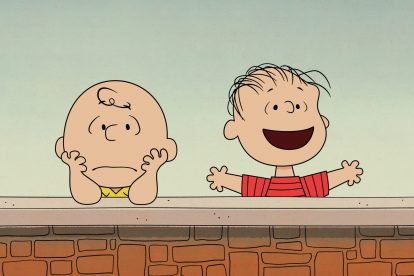Digital Edition
Good grief
A new documentary shows the enduring power of ‘Peanuts’
A heart-warming film about Charles Schulz and his life’s work is also a call to come together.
There’s a touching scene toward the end of the new documentary Who Are You, Charlie Brown? where Charles Schulz, the creator of the beloved Peanuts characters, is being interviewed by Al Roker. The interview took place shortly before Schulz died and just as the final Peanuts comic strips were being published. Roker asks Schulz how he felt about ending these comic strips that he had been creating daily for almost 50 years. Schulz, in his gentle but self-aware manner, warns, “I’ll probably cry as I say this.” Then he chokes up and says, “That poor boy never got to kick that football.” It’s a testament to just how iconic the character Schulz created is that no mention has to be made of that poor boy’s name. We all know the lovable character he’s referring to. But more important is Schulz’s willingness to show his tears on national television. In fact, his ability to show his vulnerability through Charlie Brown and Charlie Brown’s childhood companions is what makes those characters so relatable and enduring.
Who Are You, Charlie Brown? is a heart-warming film about Schulz and his life’s work. It is also a visual delight as we are treated to a plethora of comic strips, drawings, animation, and archival footage all brilliantly woven together, giving the sense that we are inside Peanuts. Director Michael Bonfiglio cleverly decides to tell two stories, that of Schulz and that of Charlie Brown. Throughout the film we are entertained by an original animated story where Charlie Brown struggles to write a 500-word essay for school describing who he is. This device allows for Charlie Brown to interact with all the beloved Peanuts characters to understand himself better. Linus offers words of wisdom. Lucy happily offers to point out all his faults (with a slideshow no less!). The little red-haired girl remains ever elusive. This story is paralleled by Schulz’s own life—perhaps a little too tidily but satisfactorily in broad strokes.
Continue Reading


